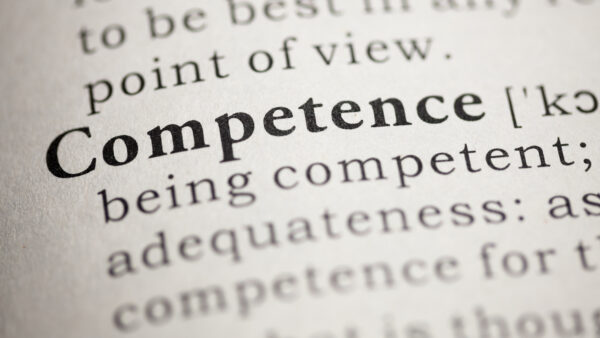The foundations for improved performance

Elaine Wilson
Elaine Wilson of ASK Europe weighs up the benefits of a KPI-based approach versus the simple art of conversation.
If any industry should understand the importance of solid foundations, it should surely be construction. But does the sector’s approach to measuring and managing staff performance provide the effective basis it needs, and is there sufficient focus on improving performance? Where this focus exists, is the sector’s project-led nature making it more concerned with meeting targets, fulfilling KPIs and avoiding penalty clauses than with the asset most critical to success – its people?
Register for free or sign in to continue reading
This is not a paywall. Registration allows us to enhance your experience across Construction Management and ensure we deliver you quality editorial content.
Registering also means you can manage your own CPDs, comments, newsletter sign-ups and privacy settings.
There are other important questions to consider that managers in the sector need to consider. The industry has a well-documented enthusiasm for measuring, but is everything that contributes to success being measured, or is most attention given to those most easily quantified? Most importantly, how are these measurements used? As Dr Petro Micheli of Warwick Business School pointed out in a Construction Manager article last year, “Value is generated when data is used” – but how data is used is also critical. Data can provide a valuable yardstick, but not if the yardstick is seen as primarily an instrument of control or punishment. The goal after all should not be to tick boxes simply to satisfy the performance measurement system.
As with all sectors, managers are under increased pressure of both time and responsibility, but they are a vital element in the performance management – and improvement – process. A 2013 CIPD report (Real-life leaders: closing the knowing-doing gap) showed that 36% of participants received no training for their role; the same percentage reported they are not appraised by their own line managers on their people management skills, while a further 22% answered “Yes, but it is less important than performance targets.”
“While formal reviews and assessment of formal reporting may indeed be a periodic process, conversations about performance can, and ideally should, take place on a day-to-day basis.”
The most effective performance management is an on-going process, which draws on metrics and data but seeks to explore their meaning and implication. Performance management – the translation of quantitative reporting into individual behaviours, skills, competences and actions – is best performed by managers through a straightforward, everyday activity – conversation.
While formal reviews and assessment of formal reporting may indeed be a periodic process, conversations about performance can, and ideally should, take place on a day-to-day basis. If shortcomings or under-performance begin to come into view, a constructive and preventive conversation now is likely to have a more positive effect than a punitive one in six months’ time.
In an industry typified by high regulation, low margins, project-based working, temporary partnerships and subcontracting, having a large number of KPIs is no surprise. But their inherently retrospective nature – measuring “how have we done?” rather than “how are we doing?” – is also important to recognise. If performance measurement is to provide a route to greater future performance its outlook needs to face forward as well as backward.
Managing people effectively means having “conversations that count” with them. Part of this conversation involves asking questions. The nature of collected performance measurement data has a significant impact in shaping and driving these questions, and systems or processes should be regularly reviewed to check whether they are enabling managers to ask the right questions. Although frequently seen as akin to holding employees to trial, performance management achieves greater, longer-lasting effects where it enables managers to drive up performance.
Part of this conversation also involves being able to answer questions, and three questions in particular. Two of these – namely “what is expected of me?” and “how am I doing?” – focus on the present, and informed answers should ensure that employees clearly understand expectations of their performance and behaviour, and how close to (or far from) these they currently stand. Empowering employees to find their own routes to achieving expectations is also “best management practice”, as it engenders a sense of contribution and increases engagement.
But there is a third question that many managers find harder to answer: “How can I develop and grow?” This question is easier to answer where performance is subject to on-going dialogue: managers who understand personal aspirations, work to align tasks with them, and delegate tasks that provide development opportunities, as well as challenges, will be far better placed to answer. But a construction manager should also be aware that constantly rebuilding the same team, or the same individual’s engagement, is an expensive and time-consuming process: providing a better foundation is definitely the best way forward.
Elaine Wilson is managing consultant at organisational development consultancy ASK Europe








